Pass
增鹽太朗
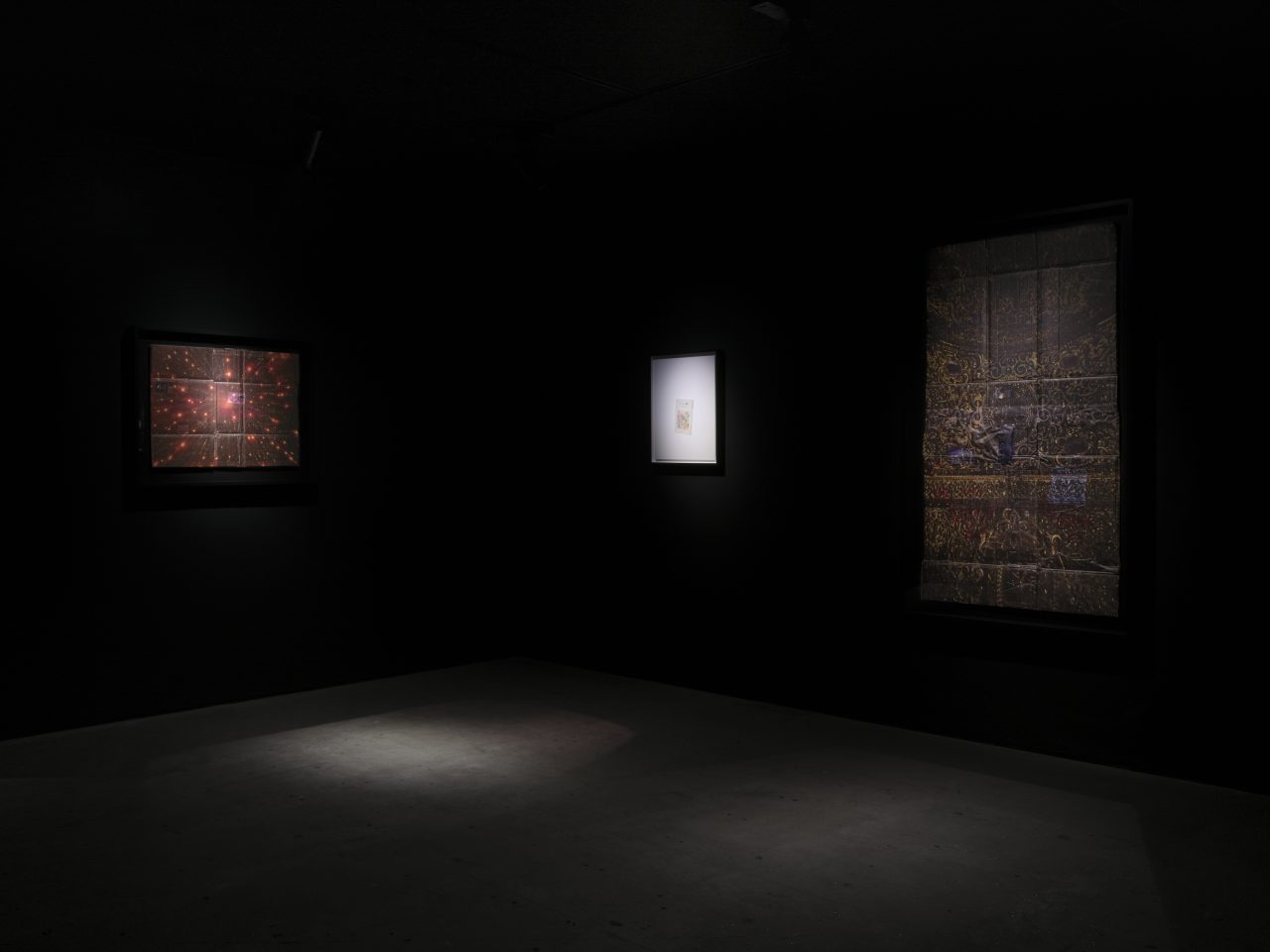
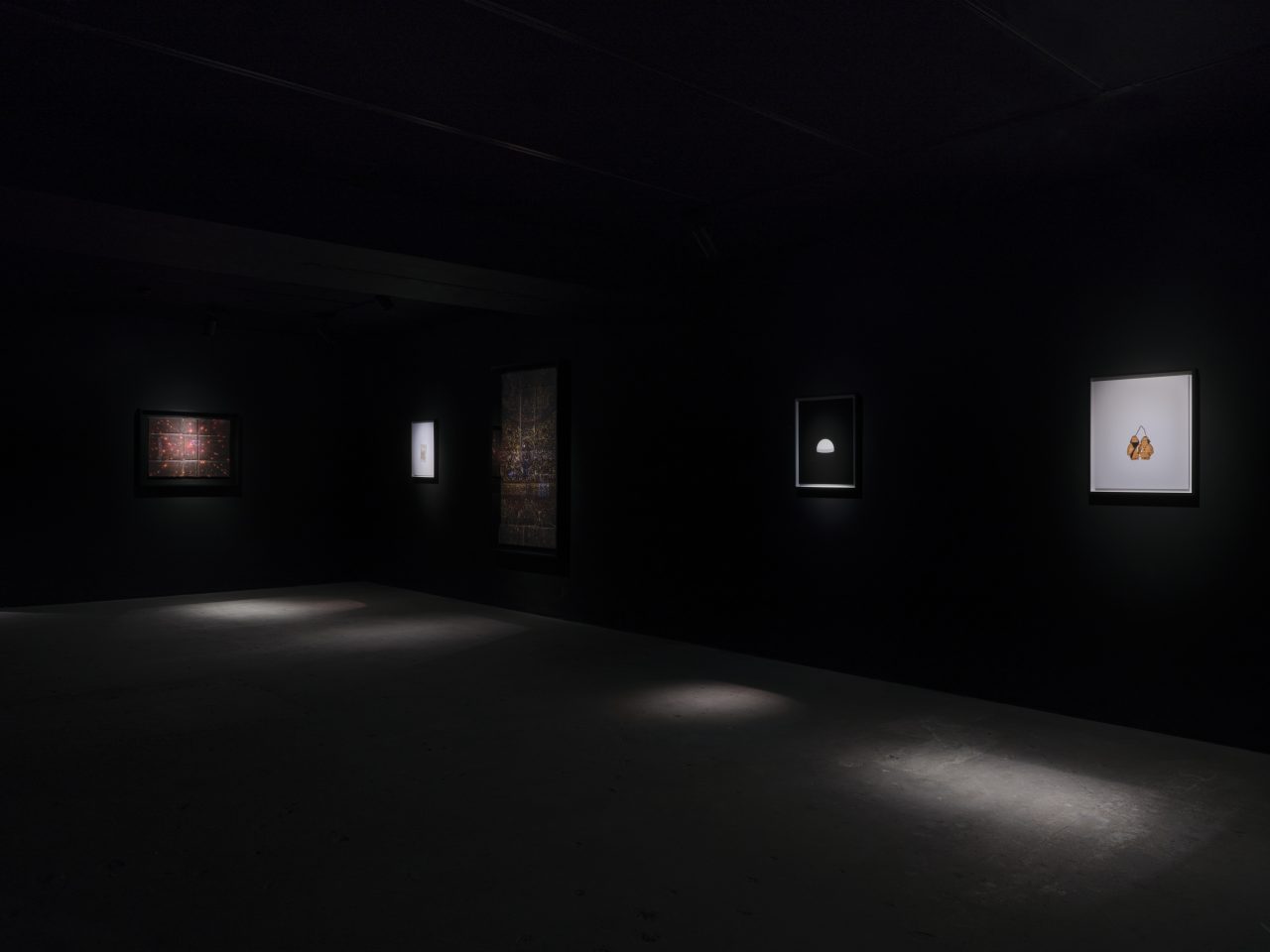
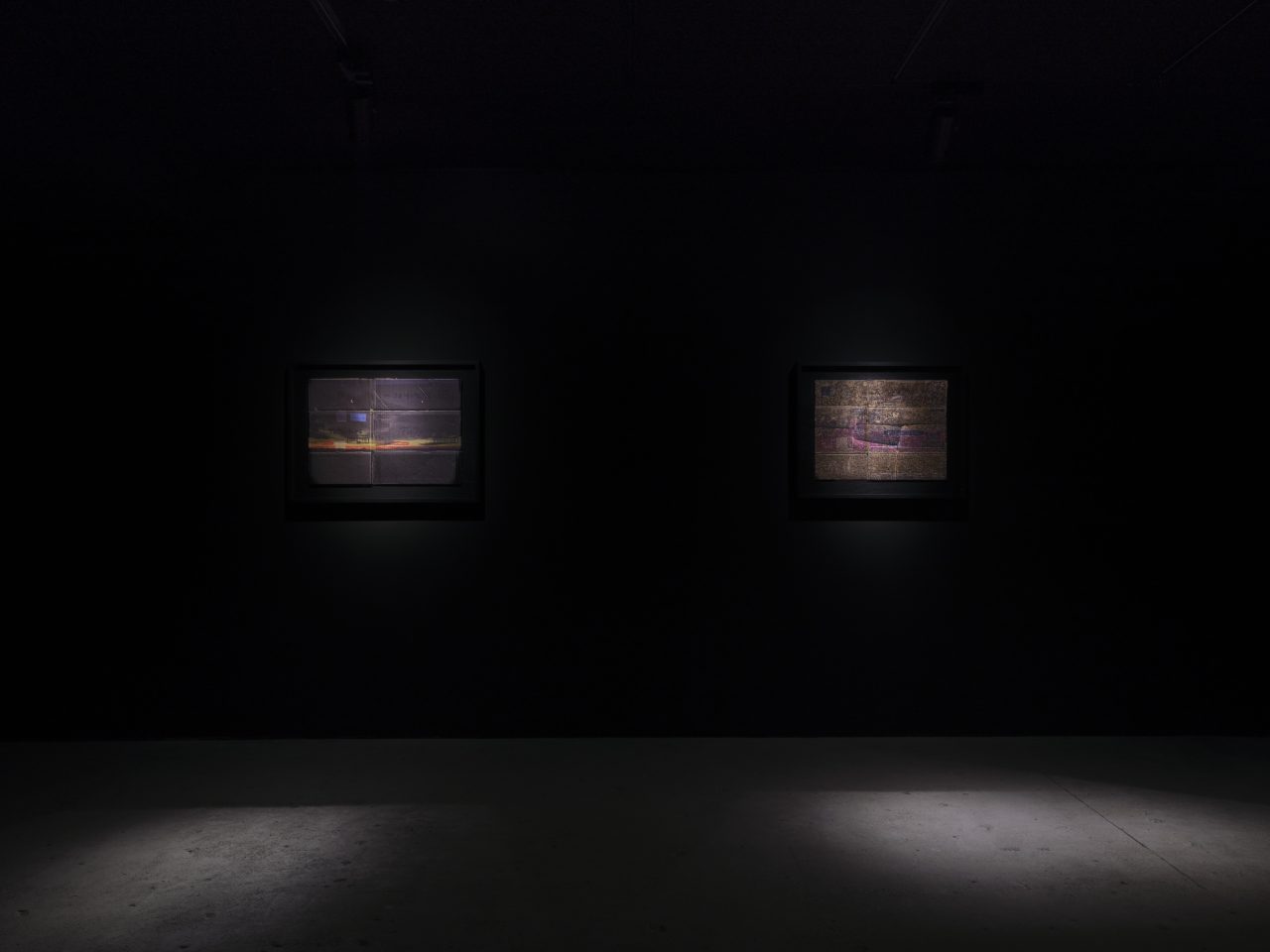
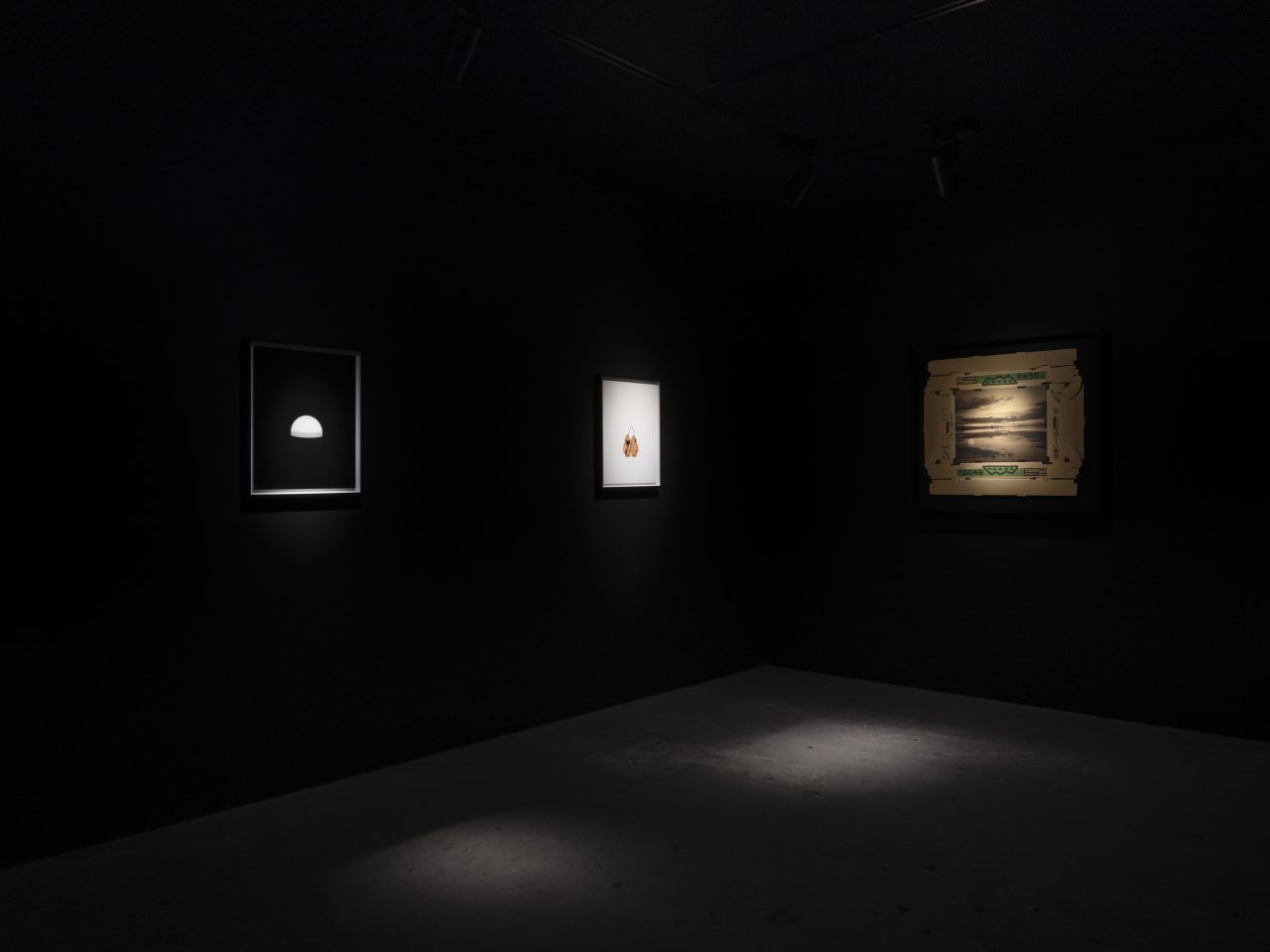
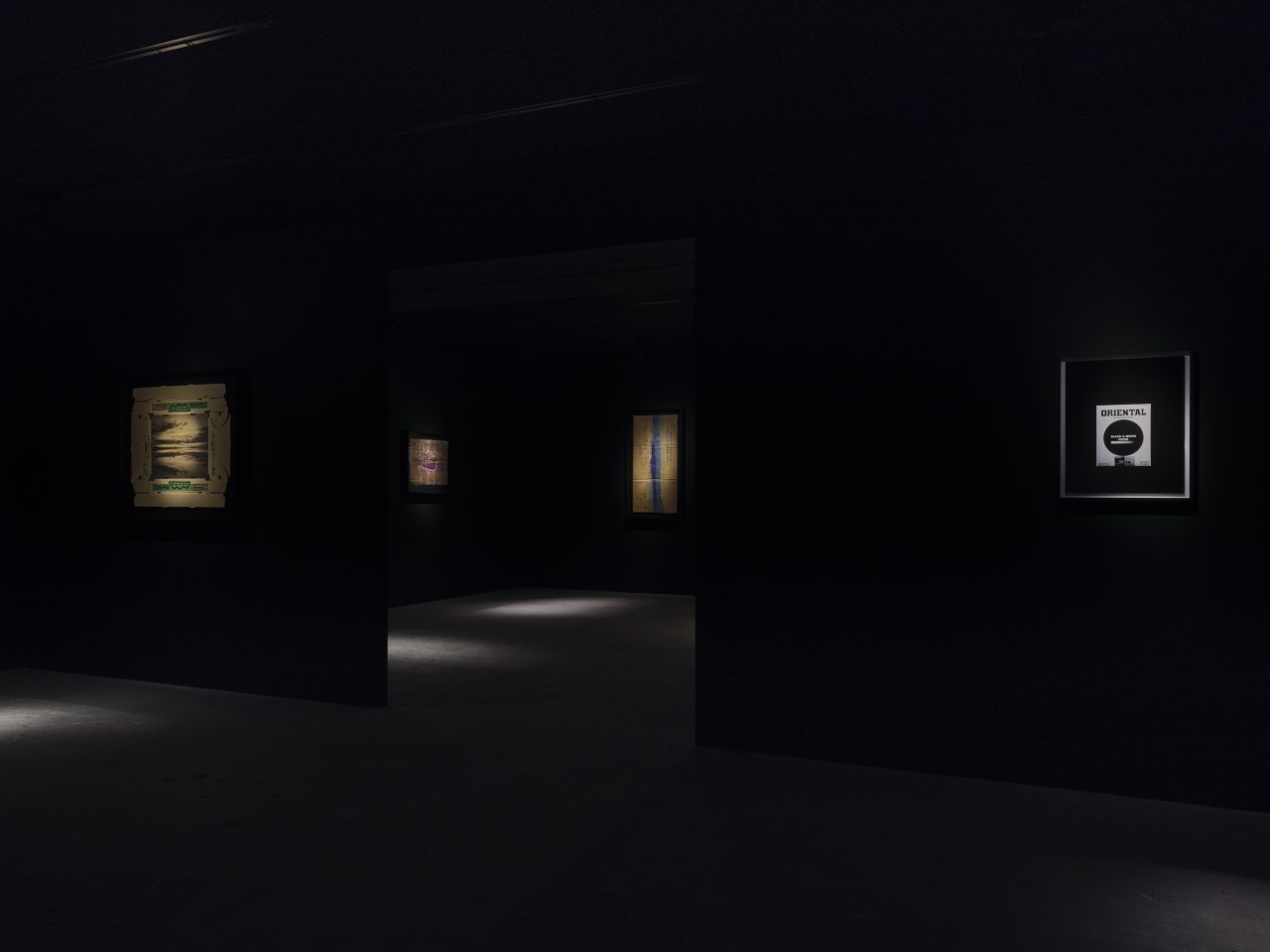
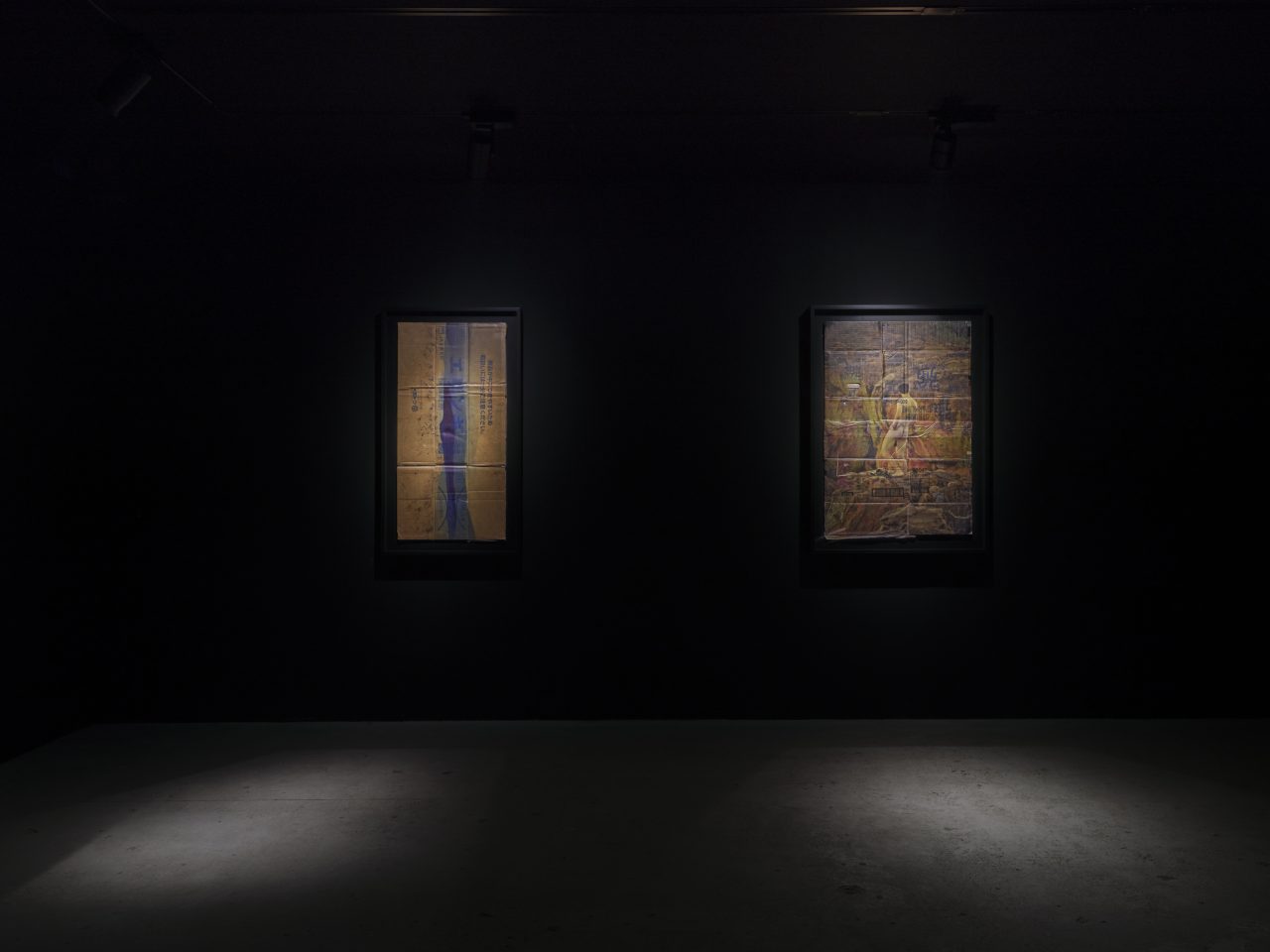
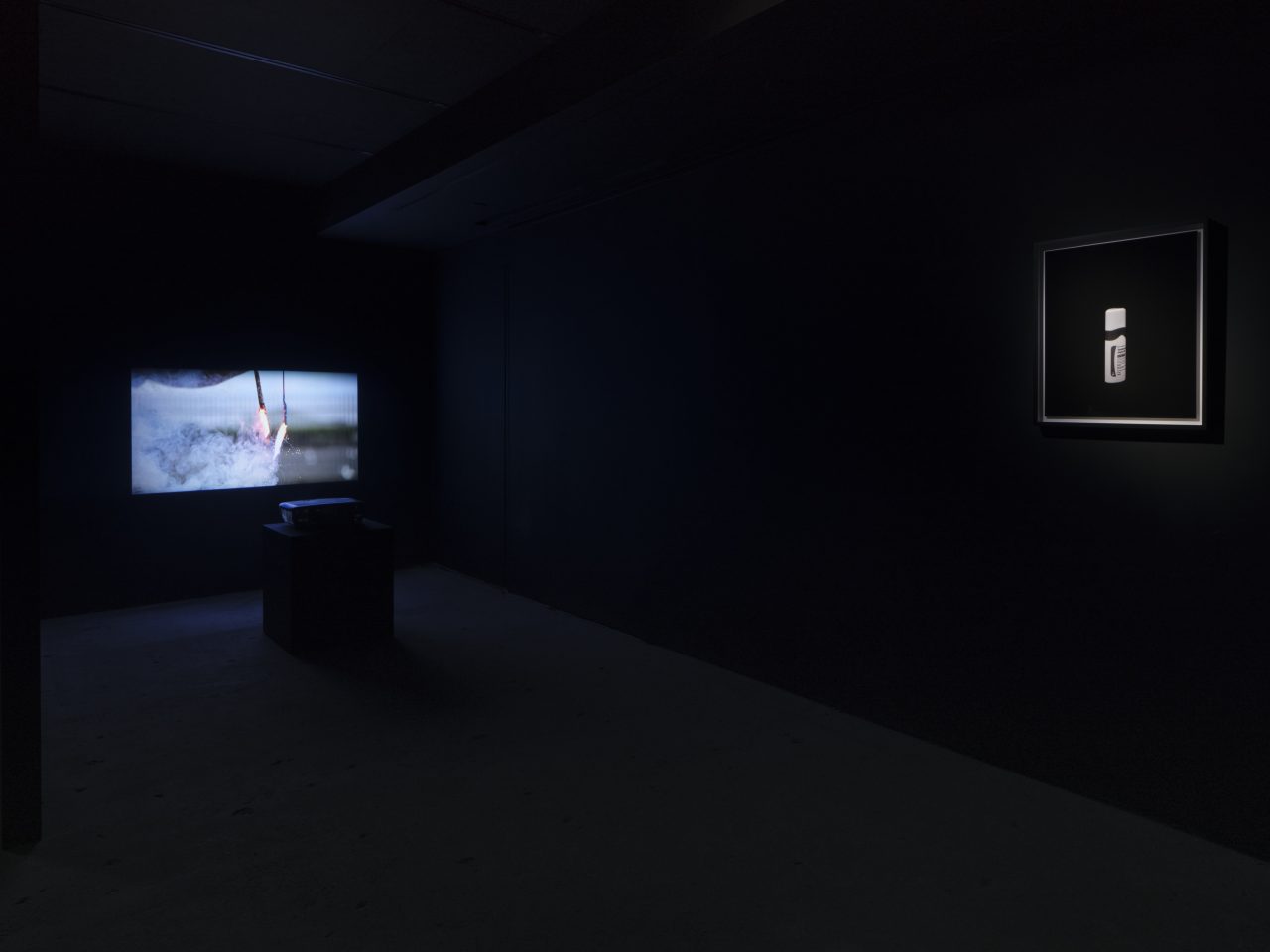
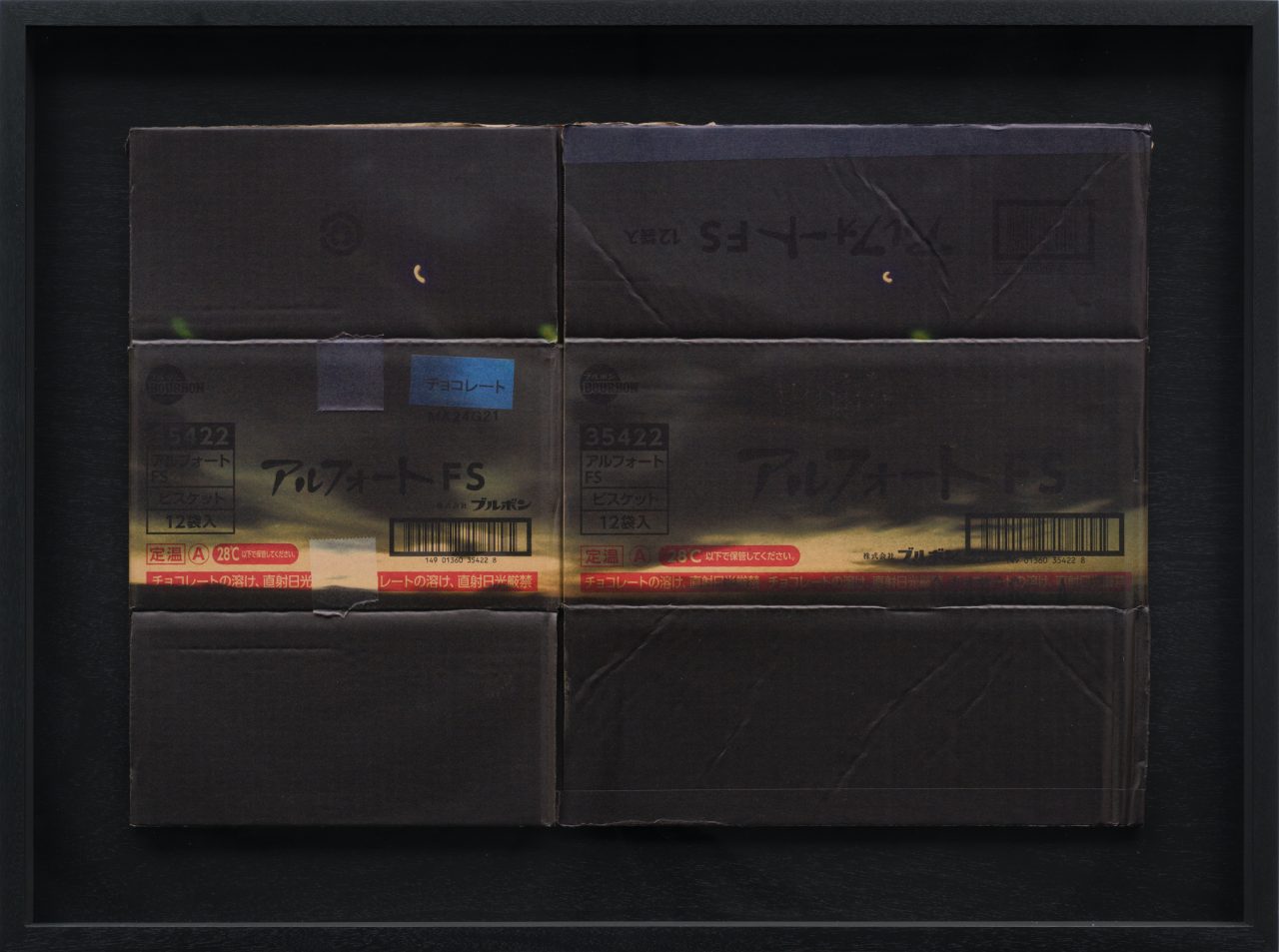
Taro Masushio, Untitled (CB #23), 2024, UV print on found cardboard. Photo: Felix SC Wong
Empty Gallery很高興為大家帶來紐約藝術家增鹽太朗在畫廊的第二次個展《Pass》。增鹽的創作將攝影定位為一種本體論研究和推想思辨的機器,並將其與影像、繪畫和雕塑等媒介融為一體的脈絡。增鹽經常從與非正式或虛構檔案的互動出發,探索圖像的能力——不是為了記錄潛在的現實,而是去操作、框定並最終延展我們的感知。
《Pass》源於增鹽與自己父親的旅遊照片的親密接觸。他的父親是一位日本退休教師,酷愛前往遙遠的異國他鄉旅行。增鹽挪用和轉化了這些表面上看似平凡的度假照片——這些照片融合了傳統的浪漫主義和某種朦朧的殖民色彩——並將它們印在用來批量裝運日本消費品的回收紙板上。色彩豐富的快照被刮痕、折跡、撕裂和磨損所削減,標識和破碎的廣告口號噴湧生成圖像的人造時空。這些紙箱可以被視作對旅遊業(及其緊密相連的全球藝術界)中虛妄的商品流通機制的指涉,也可被解讀為是在詼諧地承認此展覽本身在藝術品流通中的回收特性——一種即時的互文性的魔術。然而,這些簡陋的紙箱也充滿了一種難以定義的哀傷和獨特的溫柔,增鹽對圖像的選擇進一步放大這些情感。在這些新的紙板印刷品中穿插了一系列的靜物作品——這是他反覆使用的一種形式——增鹽構建了某種合成的遊記兼日記,藉此思辨諸多交織著的本質:世俗的旅行和精神的探險,男性氣質的探索衝動,父子關係中無休止的永恆範式。
展覽一開始,觀眾會看到〈無題37〉,這是一幅彩色靜物照片,其中是增鹽父親的一本小書——蘭波詩集的日語譯本。在增鹽的拍攝下,父親的這件物件被挪用成為進入《Pass》展覽中觀念和情感運動的潛在入口。透過圍繞商人/詩人蘭波的種種聯想,〈無題37〉指出了展覽的主題,其中是現實主義和浪漫主義之間的持續搖擺以及父子關係中不倫的生成。
在後續展覽中,增鹽的影像作品〈無題(親愛的丹特)〉展示了兩隻燃燒的煙花在模糊的地平線前盤旋。它們在畫面中湧起氤氳煙霧,遮蔽了我們的視線。一段父子間共享的閒暇片刻被捕捉又同時被消解,服從於一種放蕩的邏輯。一個聲音在誦讀一封寫給昔日戀人的信,引導我們沿著充滿情慾的渴望和自我毀滅的慾望的敘事進入。伴隨著這一音軌,影像中的圖像逐漸重新排列。我們再次看見火焰燃燒的化學反應,鍶粉與硝酸鹽混合:燃燒的金屬噴射而出,弧線劃破空虛的空氣——氧氣已在永恆的鍛造中消耗殆盡。在影片結尾,談及與愛人重逢的可能性時,這個聲音問道:「地球是圓的這一事實難道還不足以成為重逢的理由嗎?」這種呼喚,對多重時態的歸來的呼喚,對既是進展又是延續現有循環的回歸的呼喚,以一個畫面感染了整部作品:一個球體的軌跡,既是地球儀,又是代表窒息的圓形手勢。再現同樣也可以是一種窒息,只有通過駕馭圖像的豐饒——它們充滿能量且自我生成的同時性——才能穿越這種窒息。父親/兒子、自我/他者、物質/精神、異性戀/同性戀,這些定義著展覽的結構性反義詞被揭示為同一不可知對象的不同方面,隨著視角的細微變化而向彼此坍塌。自傳在此是一場詮釋學遊戲,也是一種哲學命題。循環的圓形最終變成了莫比烏斯帶。
藝術家增鹽太朗生於日本,現居紐約。他先後畢業於柏克萊加州大學及紐約大學的學士及碩士課程, 及後曾於這兩所大學任教。增鹽太朗曾於香港 Empty Gallery(2024,2020)和紐約 Ulrik(2023)舉辦個展,他的作品也曾於世界各地展出,包括 47 Canal、胶囊上海、Immanence及太平洋電影檔案館等。2022年至2023年,他於Internationales Atelier-stipendium Mönchengladbach進行藝術家駐地。2024年秋,他加入紐約 The Cooper Union大學任教,擔任 The Henry Wolf Chair一職。
翻譯者:万丰
‘Taro Masushio Folds the Fictional In on Itself“, Jaime Chu, Spike Art Magazine
‘Pass, Taro Masushio at Empty Gallery,’ Wong Binghao, Mousse